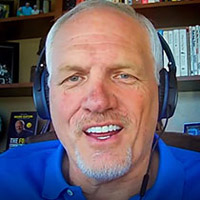Mark Eaton: The Four Commitments of a Winning Team
Episode Transcript of: Mark Eaton: The Four Commitments of a Winning Team
We hope you enjoyed this interview; “Mark Eaton: The Four Commitments of a Winning Team”.
To receive our free newsletter, contact us here.
Subscribe our YouTube Channel for more updates.
This transcript was generated by software and may not accurately reflect exactly what was said.

Alan Olsen, is the Host of the American Dreams Show and the Managing Partner of GROCO.com. GROCO is a premier family office and tax advisory firm located in the San Francisco Bay area serving clients all over the world.
Alan L. Olsen, CPA, Wikipedia Bio

GROCO.com is a proud sponsor of The American Dreams Show.

The American Dreams show was the brainchild of Alan Olsen, CPA, MBA. It was originally created to fill a specific need; often inexperienced entrepreneurs lacked basic information about raising capital and how to successfully start a business.
Alan sincerely wanted to respond to the many requests from aspiring entrepreneurs asking for the information and introductions they needed. But he had to find a way to help in which his venture capital clients and friends would not mind.
The American Dreams show became the solution, first as a radio show and now with YouTube videos as well. Always respectful of interview guest’s time, he’s able to give access to individuals information and inspiration previously inaccessible to the first-time entrepreneurs who need it most.
They can listen to venture capitalists and successful business people explain first-hand, how they got to where they are, how to start a company, how to overcome challenges, how they see the future evolving, opportunities, work-life balance and so much more.
American Dreams discusses many topics from some of the world’s most successful individuals about their secrets to life’s success. Topics from guest have included:
Creating purpose in life / Building a foundation for their life / Solving problems / Finding fulfillment through philanthropy and service / Becoming self-reliant / Enhancing effective leadership / Balancing family and work…

MyPaths.com (Also sponsored by GROCO) provides free access to content and world-class entrepreneurs, influencers and thought leaders’ personal success stories. To help you find your path in life to true, sustainable success & happiness. I’s mission statement:
In an increasingly complex and difficult world, we hope to help you find your personal path in life and build a strong foundation by learning how others found success and happiness. True and sustainable success and happiness are different for each one of us but possible, often despite significant challenges.
Our mission at MyPaths.com is to provide resources and firsthand accounts of how others found their paths in life, so you can do the same.
Mark Eaton is a successful, award-winning motivational speaker, entrepreneur and best selling author of The Four Commitments of a Winning Team, who has earned the coveted CSP (Certified Speaking Professional) designation, the speaking profession’s highest international measure of professional competence. He has spoken to numerous world-class organizations including IBM, FedEx, Phillips 66, Caesars Entertainment, T‑Mobile, LG, and businesses, government agencies and universities at every level. He has been featured as a team-building expert in print and online publications such as Forbes.com, Sports Illustrated and Entrepreneur.com. Eaton is also a 7′4″ NBA All-Star who played with the Utah Jazz for 12 seasons, led the NBA in blocked shots 4 of those seasons, was named to the NBA All-Defensive Team 5 times, was named NBA Defensive Player of the Year 2 times, and still holds 2 NBA records—most blocks in a single season (456) and career average blocked shots per game (3.5). In addition to his work on team building, Eaton is managing partner in two award-winning restaurants in Salt Lake City, Tuscany and Franck’s, recently voted Best Restaurant in Utah. Eaton is founder and former chairman of the Mark Eaton Standing Tall for Youth Foundation, which provided sports and outdoor opportunities for more than 3,000 at-risk children. He is a former president and board member of the Legends of Basketball, which supports the needs of retired NBA players. Eaton’s television and radio experience includes eight years as host of Jazz Tonight on KJZZ-TV, host of Mark Eaton Outdoors on The Outdoor Channel, and three years as host of Sports Health Today, an internationally syndicated radio show. He attended Cypress College and the University of California, Los Angeles (UCLA). When Mark is not speaking, writing, or working he enjoys traveling with his wife Teri, horseback riding, mountain biking, skiing, and the outdoors. He lives in Park City, Utah with his wife, children, horses, dogs, and barn cats.
Alan is managing partner at Greenstein, Rogoff, Olsen & Co., LLP, (GROCO) and is a respected leader in his field. He is also the radio show host to American Dreams. Alan’s CPA firm resides in the San Francisco Bay Area and serves some of the most influential Venture Capitalist in the world. GROCO’s affluent CPA core competency is advising High Net Worth individual clients in tax and financial strategies. Alan is a current member of the Stanford Institute for Economic Policy Research (S.I.E.P.R.) SIEPR’s goal is to improve long-term economic policy. Alan has more than 25 years of experience in public accounting and develops innovative financial strategies for business enterprises. Alan also serves on President Kim Clark’s BYU-Idaho Advancement council. (President Clark lead the Harvard Business School programs for 30 years prior to joining BYU-idaho. As a specialist in income tax, Alan frequently lectures and writes articles about tax issues for professional organizations and community groups. He also teaches accounting as a member of the adjunct faculty at Ohlone College.


